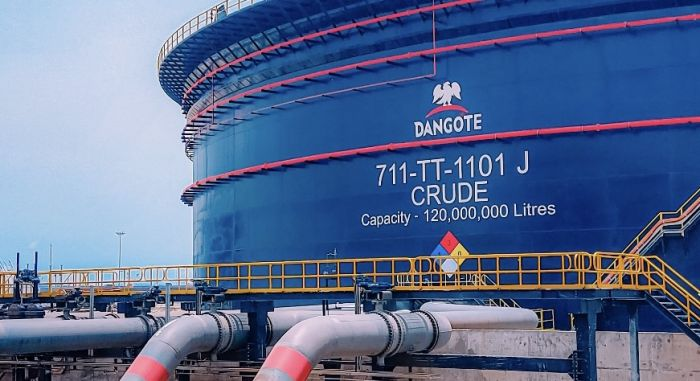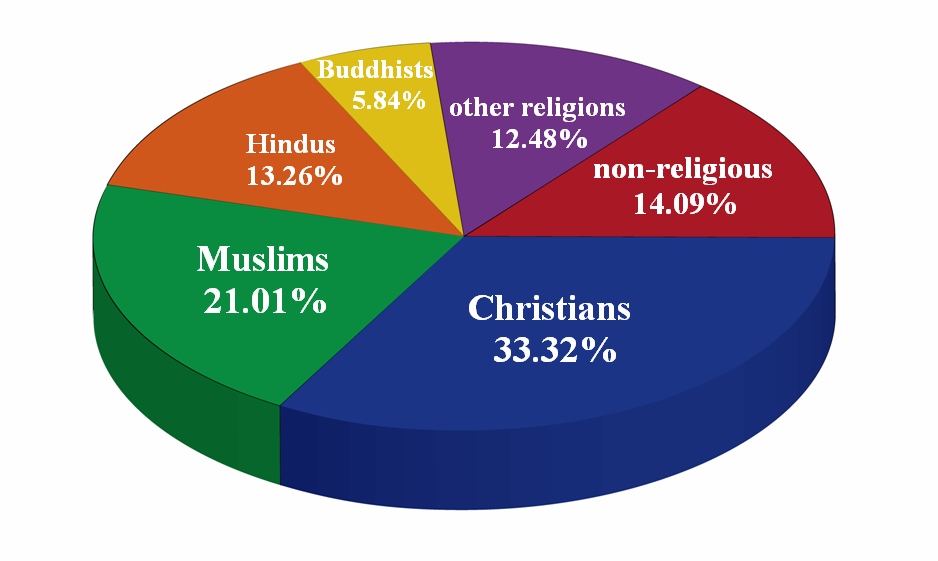Nigeria's Petrol Market: Examining The Impact Of Dangote And NNPC

Table of Contents
NNPC's Historical Dominance and Current Challenges
Monopoly and its consequences
NNPC's historical near-monopoly on Nigeria's petrol market has resulted in several significant challenges. For decades, the corporation held a stranglehold on the supply, refining, and distribution of petroleum products. This lack of competition led to predictable consequences:
- Chronic fuel shortages: Nigerians frequently faced long queues at petrol stations, leading to significant economic disruption and social unrest.
- Frequent price hikes: The absence of market forces meant prices were often subject to arbitrary increases, disproportionately affecting vulnerable populations.
- Government subsidies and their inefficiencies: The government implemented fuel subsidies to mitigate the impact of high prices, but these proved incredibly inefficient, leading to massive budgetary burdens and allegations of corruption. Estimates suggest that fuel subsidies consumed a significant percentage of Nigeria's GDP annually, diverting funds from essential public services.
- Corruption allegations: The opacity of NNPC's operations fueled accusations of widespread corruption, undermining public trust and hindering economic development.
These issues cumulatively crippled the Nigerian economy, impacting everything from transportation costs to the prices of essential goods and services. The instability in the petrol market created uncertainty for businesses and hindered investment.
NNPC's Reform Efforts
Recognizing the urgent need for reform, the Nigerian government has undertaken several initiatives to restructure NNPC and improve its operations. These efforts include:
- Recent restructuring initiatives: The NNPC has been reorganized into various subsidiary companies, aiming to improve efficiency and accountability.
- Attempts to improve transparency: Efforts are underway to enhance transparency in NNPC's operations, including the publication of financial statements and the implementation of stricter auditing procedures.
- Partnerships with private sector players: The government is encouraging greater participation from private sector companies in the petroleum industry to foster competition.
However, reforming a state-owned entity of NNPC's size and complexity presents significant challenges. Progress has been slow, and the full impact of these reforms remains to be seen. The success of these initiatives will depend on overcoming deeply ingrained bureaucratic hurdles and fostering a culture of accountability and transparency within NNPC.
The Rise of Dangote Refinery and its Market Implications
Capacity and Potential Impact on Supply
The Dangote Refinery, with its massive refining capacity, represents a potential game-changer for Nigeria's petrol market. Its projected output is substantial, offering:
- Refining capacity: The refinery's projected capacity significantly surpasses current domestic refining capabilities.
- Potential for reduced reliance on imports: A significant portion of Nigeria's petrol needs are currently met through expensive imports. The Dangote Refinery has the potential to drastically reduce this reliance.
- Impact on local job creation: The refinery's construction and operation are expected to generate a large number of jobs, boosting employment in the country.
The projected increase in domestic refining capacity will significantly reduce Nigeria's dependence on imported petroleum products. This will have a positive impact on foreign exchange reserves and reduce vulnerability to global oil price fluctuations. Currently, Nigeria imports a significant amount of refined petroleum products; the Dangote refinery's capacity is poised to transform this reality.
Price Competition and Consumer Benefits
The entry of Dangote Refinery into the market introduces much-needed competition, potentially leading to several consumer benefits:
- Potential price reductions: Increased competition is likely to exert downward pressure on petrol prices, making fuel more affordable for consumers.
- Increased availability: The refinery’s capacity could help alleviate fuel shortages, ensuring greater consistency of supply.
- Improved quality of fuel: Increased competition may also encourage improvements in the quality of petrol offered to consumers.
However, the actual impact on prices will depend on various factors including crude oil prices, transportation costs, and government regulations. A competitive market, however, inherently provides consumers with greater purchasing power and choice.
Challenges and Potential Hurdles
Despite its potential, the Dangote Refinery faces several challenges:
- Transportation infrastructure bottlenecks: Nigeria’s inadequate transportation infrastructure presents a logistical challenge in the efficient distribution of refined petroleum products across the country.
- Access to crude oil supplies: Securing a consistent and reliable supply of crude oil is critical for the refinery's operation.
- Regulatory framework challenges: Navigating the regulatory landscape and obtaining necessary permits and approvals can pose significant hurdles.
Addressing these challenges is crucial for the refinery's long-term success and its ability to fully realize its potential to transform Nigeria's petrol market. Effective government policies and investments in infrastructure are key to overcoming these hurdles.
The Future of Nigeria's Petrol Market: A Competitive Landscape?
Coexistence and Collaboration
The future of Nigeria's petrol market will likely involve a dynamic interplay between NNPC and the Dangote Refinery. Several scenarios are possible:
- Potential partnerships: NNPC and Dangote could collaborate on projects, sharing infrastructure or expertise to optimize efficiency.
- Shared infrastructure: Joint ventures in areas like pipeline networks could benefit both companies and enhance the overall efficiency of the industry.
- Complementary roles in the market: NNPC could focus on specific areas, allowing for a more diversified and robust petrol market.
A collaborative approach could lead to synergies and unlock greater value for both entities and the Nigerian economy.
Implications for Energy Security and Economic Growth
The transformation of Nigeria's petrol market holds significant implications for the nation's energy security and economic growth:
- Reduced dependence on imports: This will save substantial foreign exchange and reduce vulnerability to global price shocks.
- Increased energy access: Improved supply and potentially lower prices could significantly improve access to energy for businesses and households.
- Implications for foreign exchange reserves: Reduced reliance on imports will strengthen Nigeria's foreign exchange reserves.
A more diversified and competitive petrol market will contribute significantly to Nigeria's economic stability and sustainable development. This shift can pave the way for more robust economic growth and a more stable energy sector.
Conclusion
The impact of the Dangote Refinery on Nigeria's petrol market is expected to be transformative. While NNPC's historical dominance has presented significant challenges, the emergence of a major private player promises increased competition, potentially leading to lower prices, improved supply, and greater energy security for Nigeria. The success of this transition will depend on effective regulatory frameworks, efficient infrastructure, and a collaborative approach between NNPC and private sector players. Further investigation into the ongoing dynamics of Nigeria's petrol market is crucial to understand its full impact. Continue to follow the developments in Nigeria's petrol market for the latest updates.

Featured Posts
-
 Gods Mercy Across Faiths Religious Beliefs In 1889
May 10, 2025
Gods Mercy Across Faiths Religious Beliefs In 1889
May 10, 2025 -
 Driver Charged After Fatal Elizabeth City Pedestrian Accident
May 10, 2025
Driver Charged After Fatal Elizabeth City Pedestrian Accident
May 10, 2025 -
 Affaire Bilel Latreche Violences Conjugales A Dijon Convocation Au Tribunal
May 10, 2025
Affaire Bilel Latreche Violences Conjugales A Dijon Convocation Au Tribunal
May 10, 2025 -
 The Unthinkable Tragedy A Familys Life Destroyed By Racist Violence
May 10, 2025
The Unthinkable Tragedy A Familys Life Destroyed By Racist Violence
May 10, 2025 -
 Snls Failed Harry Styles Impression His Reaction
May 10, 2025
Snls Failed Harry Styles Impression His Reaction
May 10, 2025
